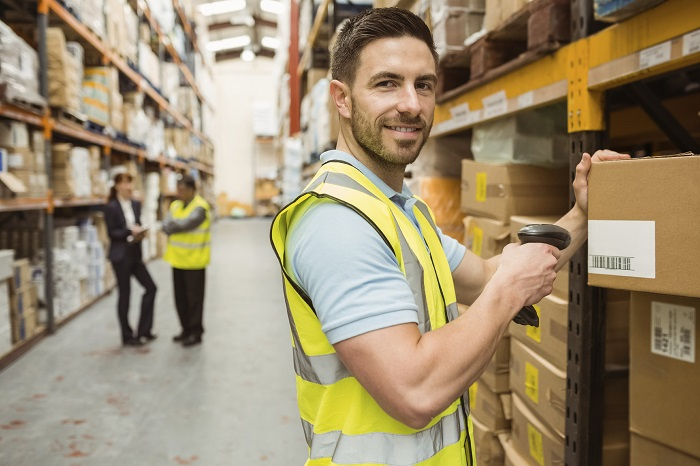It’s a volatile, challenging world out there. We’d love to say that isn’t the case, and we do believe that there are a lot of reasons for businesses to be optimistic about the present and future. But there’s no denying that the pandemic has made logistics more challenging than ever.
In fact, if you needed proof beyond what you can see with your own eyes, the Council of Supply Chain Management Professionals (CSCMP) recently released their new annual “State of Logistics” report, outlining a number of hurdles facing business owners and corporations. Meanwhile, we’ve gathered three of our own all-stars at Nexterus — Peggy Stewart, International Operations Officer; Lisa Flohr, Director of Domestic Operations; and Ryan Moore, Manager of Supply Chain Solutions — to discuss the report and in general the state of today’s supply chain.
Here are some of the takeaways from CSCMP’s annual report and our conversation with Stewart, Flohr, and Moore.
First, the good news: The economy is growing.
The American GDP (gross domestic product) should grow by more than 7.7 percent in 2021, according to the CSCMP annual report. That said, the report noted, “additional logistics wildcards include natural disasters, trade policy shifts, reshoring, and tight labor markets.”
So, there is good economic news out there — but the challenges of capitalizing on the growing economy are also increasing, and there’s no sign of them abating any time soon.
“None of us have ever seen anything like this,” Moore says, and he adds that between him, Flohr, and Stewart, they all have approximately 100 years of supply chain experience. “Hurricane season in the East, fires in the West. All of this impacts the supply chain, along with the pandemic,” Moore says. Nobody, he adds, knows when things are going to get easier.
Trucking is tricky.
The saying, “Just keep on truckin,” came about as early as the 1930s, but as some of our readers may recall, it was a popular phrase in the 1970s. Well, trucks are having trouble keeping on, with a truck driver shortage and demand being higher than ever. We can expect tight capacity and high rates for the foreseeable future, according to the CSCMP annual report.
“We’ve been fighting a driver shortage in the LTL industry over the past five-plus years,” Moore says. “Drivers are aging out. People are not interested in driving a tractor-trailer. We’re also seeing labor shortages in warehouses and docks.”
Flohr agrees.
“We’re seeing prices rise because carriers are paying more for drivers, along with bonuses. They’re increasing their per mileage rate and often paying an extra 10 cents a mile to entice drivers to come to work for them. We don’t see this payment arrangement coming to an end any time soon,” Flohr says.
In fact, Flohr adds, we could see trucking prices rise into the first quarter of 2022. “It’s supply and demand,” she said. “There are 20 loads for every truck, and that drives prices higher.”
This makes it essential for businesses to have help when working to keep their supply chain functioning.
3PLs are more vital than ever.
We aren’t just saying that. The CSCMP annual report offered a ringing endorsement for businesses working with a third-party logistics company, which is what Nexterus is.
As the CSCMP report stated, “In turbulent times, 3PLs have the scale, expertise, and extensive network to achieve needed resilience; and are doubling down in e-commerce fulfillment. The pandemic increased costs, disrupted efficiencies, and caused shippers’ needs to diverge. But it also highlighted the value of end-to-end visibility, data, and analytics, which 3PLs are well-positioned to provide.”
We couldn’t have said it any better ourselves.
“Our customer service is very hands-on,” Flohr says. “We still answer the phone. We’ll communicate via phone or email — any way a customer wants to communicate. You can reach us whenever necessary. We’re not just selling our TMS (transportation management system) for your shipments.”
“We assist from pickup to delivery — everything in the supply chain from A to B. Shipment lost? We’ll file claims for you,” Flohr says.
She adds that supply chains are often about relationship building, which is something the Nexterus company culture is all about. After all, you need to know who to call when things go wrong in a supply chain. It’s when you don’t know who to call or where to turn that you can feel lost — and whatever is moving along in your supply chain may literally become lost.
It’s no better by air.
Instead of trucking, can you ship your wares more easily by air? Hardly. The CSCMP report says the airline shipping industry was “gutted” during the worst of the pandemic. The report did provide some measure of optimism but was laden with plenty of pessimism. “Capacity will recover, and conditions will stabilize — but slowly and erratically. Prices will likely remain high, requiring nimble shipper sourcing strategies.”
Fuel costs are another reason airline prices — not to mention trucking — are so high, Moore says.
The ocean is also giving business owners a sinking feeling.
The problem, the report stated, is that “ocean rates have skyrocketed and show no indication of returning to pre-pandemic levels. That’s good news for carrier profitability but bad news for shippers, as prices will likely stay high until capacity catches up to demand. Meanwhile, record U.S. port congestion has created bottlenecks in strained supply chains.”
Stewart agrees. “The container shortages, and port closures in China and Asia, and port congestion in the United States — it’s created gridlock everywhere. We have so many vessels sitting off the coast in California, New York, Georgia, and other cities waiting to unload. While they wait, they can’t unload and get more freight. There are Christmas items on those ships. In fact, Walmart has chartered their own vessels at the moment.”
There is a bright side to all of this.
At least, we see one. The pandemic has made many of us —here at Nexterus, but probably people around the world are feeling this — appreciate even more how connected we all are. We really can’t run our businesses or live our lives without a lot of help.
“For the first time in my life, my friends and family, they finally know what I do,” Moore says. “At the beginning of the pandemic, they would wonder why toilet paper wasn’t reaching the supermarket shelves. It was a logistics problem.”
Sure, it was also shoppers hoarding toilet paper, but it was also a supply chain issue.
Moore says, and he isn’t really joking, “The next time you see a truck driver, you might want to buy that driver a cup of coffee — or just thank them for what they do for us. There are a lot of moving pieces that pivot daily to help keep our society functioning.”
Do you have questions about your supply chain that keep you up at night? Learn more about how you can partner with the supply chain experts at Nexterus to address your supply chain challenges and keep your company on the road to success. Let’s talk today!



